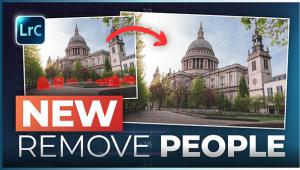Business Trends
Back To Basics Part 1
How To Get Started In Your Photography Business
|
My popular request we will take the next few months and look at the basics of getting a photography business started (or restarted, as the case may be). This month we will discuss making the commitment to being in business and the financial and legal issues to get the business started. In February, you will learn how to find out what images to shoot and who will buy them. In March, we will show you how to develop, write, and implement a "plan of action." Whether you have been in business two weeks or 20 years, I hope you will find the information worthwhile and valuable. The Need For Commitment Every photographer goes through a lot of self-doubt at various points in their career. It is not meant to stop you. It only means you are doing something you have never done before and you don't feel the assertiveness or commitment. Don't wait for the feelings. Take the actions and the feelings will follow! It is not enough for me to say, "take action"--readers have been asking for specific information. The financial and legal issues discussed here will do two things to create or reinforce your commitment. One, you get the specific steps to create the action that will move you ahead in business. Two, you then get the feeling of confidence that follows taking action. |
|
Getting The Business Started We cannot cover every possible financial contingency so, to start, please check with an accountant. Preferably, you will be working with one who specializes in working with photography businesses. If not, then at least work with someone who has a focus on professional services and small businesses. There are many tax issues specific to your photography business that accountants in general will not be aware of. The best way to find an accountant is through the local chapter of your professional photography association. For more specific information on photography issues, check out the book by the ASMP (American Society of Media Photographers) ASMP Professional Business Practices in Photography-6th Edition (www.allworth.com). In addition, the Small Business Administration and their SCORE (Service Corps Of Retired Executives) programs have proved invaluable to many photographers. Whether you are in start up or restart mode, these are federal agencies designed to assist you. They have local offices all over the US. Check their web site, www.sba.gov for more information on their services, publications, and seminars. Keep checking back with them, as they also publish updated information for those of you reinventing your business! The one critical financial issue for every photographer starting out will be the separation of business and personal finances. Bookkeeping is essentially the recording of money in and money out (think of writing in your checkbook). The Internal Revenue Service asks that you keep your business and personal cash flow separate to maintain your status as a business. As a hobbyist, you will not get the tax deductions and depreciations available to you as a business. Keeping the two separate will also ease your accountant's task of determining your total tax liability. Maintaining a separate business checking account and a personal checking account is even easier with inexpensive software packages such as "Quicken" by Intuit (www.quicken.com). As we have already discussed photography pricing in several past columns, for this discussion on financial issues I will just remind you to read Pricing Photography-3rd Edition by Michal Heron and David MacTavish to make sure your pricing practices are up-to-date (www.allworth.com). |
|
Legal Issues Federal State County City Next month we will look at making the images and the areas of photographic specialization you might consider as a vehicle for expanding your business opportunities. |



















































